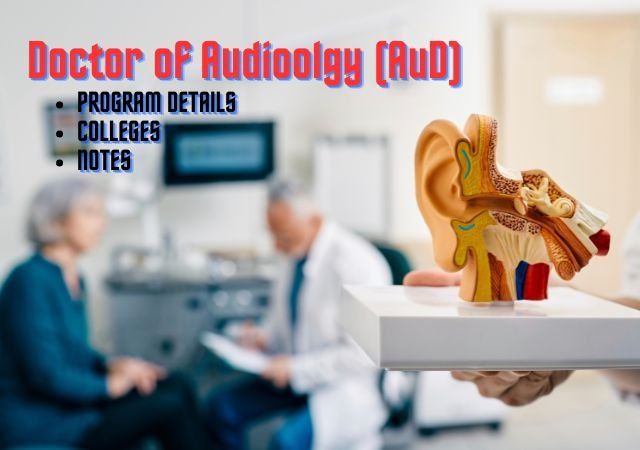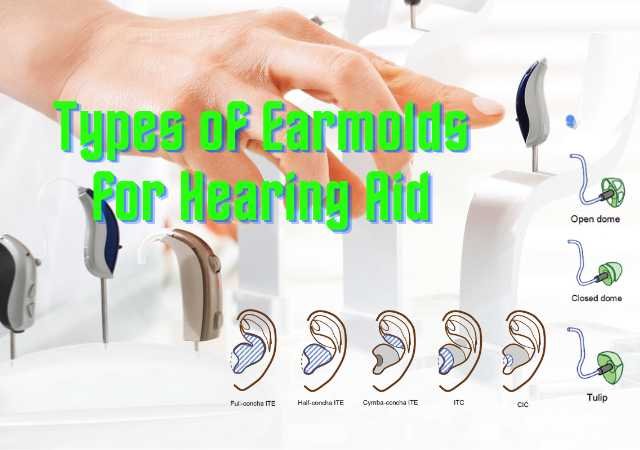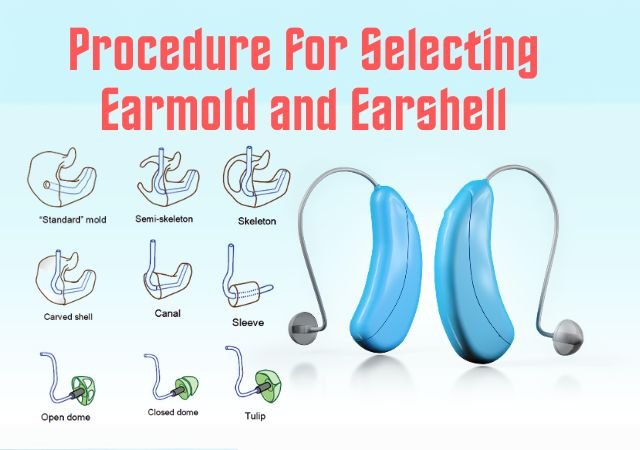Doctor of Audiology (AuD) Program – Details | Colleges | Notes: Audiology is an important profession in the field of medicine as its focus on hearing, an essential human sense. Doctor of Audiology The AuD program prepares specialists in the evaluation and management of auditory and vestibular disorders. If you have longed to be an audiologist, this detailed guide gives you everything from the AuD required education to career information and more!
Program Title: Doctor of Audiology (AuD)
Country Origin: United States of America (USA)

Doctor of Audiology Program Details
The Au.D. program consists of 110 semester credit hours and is a complete four-year graduate program. Clinical and academic components comprise the curriculum, with coursework addressing the basic sciences, applied audiology, clinical research, statistics, audiological rehabilitation, medical neuroscience, neuro-otology, cochlear implants, administration, programmable (digital) hearing aids, counseling, and aging. Graduates are eligible for the Certificate of Clinical Competence in Audiology (CCC-A) from the American Speech-Language-Hearing Association, Board Certification in Audiology from the American Academy of Audiology, and state licensure in audiology.
Prerequisites for The Doctor of Audiology Program
Candidates with a Doctor of Audiology (Au.D.) applicants need to meet certain prerequisites, which vary from program to program. There may be slight variations by program, but the broad requirements are:
Academic Requirements:
- Bachelor’s Degree: Usually, you need at least a bachelor’s degree from an accredited institution. Some programs prefer degree holders with degrees in communication sciences and disorders but others accept related fields such as biology, psychology, linguistics, or health sciences.
- Prerequisite Courses: Common prerequisite courses, which typically include speech and hearing science, biology, physics, psychology, and statistics. Common prerequisites may be:
- Anatomy and Physiology
- Introduction to Audiology
- Speech and Hearing Science
- Phonetics
- Hearing and Speech Mechanism
Test Scores:
- Graduate Record Examination (GRE): Most programs still require GRE scores, but increasingly, some have made them optional or do not require GREs at all. Individual programs have their own requirements.
Experience:
- Clinical Observation Hours: Some programs might require or recommend observation hours in audiology or in other clinical settings. (good place/time to learn practical skills) and using good place to demonstrate some interest in your chosen field.
Additional Requirements:
- Letters of Recommendation: Minimum 2-3 letters of recommendations are required. These letters of recommendation should ideally be from academic advisors or professors, or from professionals working in the field of audiology who can speak to the applicant’s qualifications and ability to succeed in the program.
- Personal Statement or Essay: Oftentimes, applicants also have to write a personal statement or essay detailing their interest in audiology, their career goals, and what makes the specific program appealing to them. This is your chance to emphasize pertinent experiences and motivations.
- Resume or Curriculum Vitae (CV): A current resume or CV that outlines your academic background, work experience, research, volunteer experience and any relevant skills or achievements.
- Interviews: Some programs will even require an interview in addition to the admission materials. Which can be face-to-face, by phone call, or through video conferencing.
International Applicants:
- English Proficiency: International students who are not native English speakers may have to provide evidence of English proficiency through tests such as TOEFL or IELTS.
Other Considerations:
- Background Check: Programs may require a background check as part of the admissions process or before beginning clinical practicum experiences.
Researching Specific Programs:
It’s crucial to check the specific requirements of each Au.D. program you are interested in, as there can be variations. Many programs provide detailed admissions requirements on their websites.
By fulfilling these prerequisites, applicants can prepare a competitive application for Doctor of Audiology programs in the United States.
Prerequisites depending on the College
Prerequisites vary depending on the college you choose. For detailed prerequisites for each college, please click the link.
- Washington University in St. Louis
- University of Florida Health
- University of Texas at Austin
- University of Maryland
- University of Iowa
Colleges welcome students with undergraduate backgrounds in Communication Sciences and Disorders (CSD) and those from various other educational fields. Doctor of Audiology programs typically have a balanced mix of students with CSD majors and those from non-CSD backgrounds. We appreciate the unique perspectives each group brings to the classroom and clinic.
Applicants to the Northwestern Doctor of Audiology program must provide evidence of completing at least one course in each of the following areas. These courses don’t need to be finished before applying to the program but must be completed before starting the program. They can be taken at any accredited university, either in-person or online. Note that high school Advanced Placement courses and CLEP credits do not fulfill this prerequisite requirement.
All prerequisite courses must be completed with a grade of B- or better
- Biological Sciences (examples include Biology, Neuroanatomy and Neurophysiology, Human Genetics; a lab is not required)
- Physical Sciences (examples include Chemistry, Physics, Acoustics; a lab is not required)
- Social/BehavioralSciences (examples include Psychology, Sociology, Anthropology, Education)
- Typical Language Acquisition/Development
- Mathematics beyond college algebra (examples include Pre-Calculus, Calculus, Finite Math)
- Statistics (must be an actual statistics course and not a research methods course)
Additional Requirements for International Students
International applicants must submit an official evaluation of their transcripts to the program via a credentialing agency. Note that domestic applicants who have completed a degree program or coursework at an international institution may also need to provide an official transcript evaluation.
If English is not your native language, you must take one of the following tests within one year of application and submit your official scores:
- TOEFL: Minimum score of 100
- IELTS: Minimum score of 7
Doctor of Audiology Program Fee
Tuition for Master of Speech-Language Pathology (SLP) program in USA The tuition for an SLP program in the USA depends on the university, and the duration of the course and whether you are an in-state or out-of-state candidate. Generally, tuition for full-time students ranges from $30,000 to $70,000 annually. This amount covers tuition and fees, but you should also anticipate costs for items such as books and supplies, as well as living expenses. Mere aspirants should refer to financial aid which may include scholarships, grants, and student loans to help meet these costs. But there’s actually a lot you won’t know until you research specific programs to understand the accurate costs and aid opportunities.
Doctor of Audiology Curriculum
Though the specific curriculum of the Doctor of Audiology (AuD) program differs from institution to institution, it all is rooted in the required coursework put forth by ASHA. For our specific college curriculums click the college links.
- Washington University in St. Louis
- University of Florida Health
- University of Texas at Austin
- University of Maryland
- University of Iowa
Required coursework ASHA
- Acoustics for Speech and Hearing Sciences
- Acoustics—Calibration and Instruments
- Amplification I and II
- Anatomy and Physiology of the Auditory and Vestibular Systems
- Assessment and Rehab of the Balance System
- Audiologic Assessment/Evaluation
- Aural Rehabilitation
- Business Aspects of Audiology
- Central Auditory Processing Disorder
- Child Speech and Language Development and Disorders
- Cochlear Implants and Implantable Devices
- Counseling Techniques in communication sciences and disorders (CSD)
- Disorders of Hearing and Balance
- Electrophysiology to include auditory brainstem response (ABR), P300, middle latency, obligatory and cognitive cortical response, and the pathophysiologic and behavioral correlates
- Ethics
- Hearing and Aging
- Neuroscience Overview
- Hearing Conservation
- Pediatric Audiology
- Professional Issues
- Psychophysical Acoustics
- Research
- Speech Perception
- Tinnitus
Doctor of Audiology Program Colleges in USA
Available audiology programs if you are planning on a Doctor of Audiology (AuD) degree in the United States. Below are some information about five top colleges that offer an AuD program:
1. Washington University in St. Louis
Washington University in St. Louis – Offering an AuD program with a robust curriculum and clinical opportunities. Course work in areas such as basic sciences, clinical research, amplification, pediatric audiology, and counseling prepare students well for success in their programs. The program design complies with the American Speech-Language-Hearing Association (ASHA) accreditation standards to graduate students for licensure and practice in a variety of settings.
2. University of Florida Health
University of Florida | Doctor of Audiology (AuD) | Gainesville, FLEvidence-based practice and clinical excellence are at the forefront of this comprehensive program offered at the University of Florida. Students learn through coursework in areas such as audiological evaluation, rehabilitation, pediatric audiology, and cochlear implants. You don’t get any information about the program until my own graduate program, which places a high value on hands-on clinical experiences, research opportunities, and interprofessional collaboration, equipping students with the skills and knowledge they need to thrive in the field of audiology.
- More Details: University of Florida Health – Doctor of Audiology (AuD)
3. University of Texas at Austin
At the University of Texas at Austin, Students take part in a 4-year professional Doctor of Audiology program, with a comprehensive course structure providing a blend of coursework and clinical training. Student coursework may cover topics including anatomy and physiology of the auditory system, assessment and management of hearing disorders, electrophysiology, and hearing conservation. This program emphasizes the practical application of theoretical knowledge, allowing students to develop essential clinical skills through clinical rotations, research projects, and community outreach initiatives to prepare them for a successful career in audiology.
4. University of Maryland
The AuD program at the University of Maryland is a progressive approach that prepares students for future audiological practice across various clinical environments. Students take courses exploring foundational and advanced topics in audiology, including diagnostic testing, auditory rehabilitation, pediatric audiology, and counseling. As a result, you will develop your skills with research-oriented projects, free of charge clinical practicum as well as communications training. Graduates will be prepared to deliver competent and ethical care to persons with hearing and balance disorders.
- More Details: University of Maryland – Doctor of Audiology (AuD)
5. University of Iowa
At the University of Iowa, one of the best AuD programs in the nation, is revered for its programs in clinical training, research, and innovation. Each provides an integrated program of coursework in basic sciences, diagnostic audiology, amplification, cochlear implants, and vestibular assessment. The program focuses on evidence-based practice, interprofessional collaboration, and leadership development, equipping graduates to meet the changing needs of individuals with auditory and vestibular disorders across diverse healthcare environments.
- More Details: University of Iowa – Doctor of Audiology (AuD)
These colleges have different AuD education models, yet they all have a mission to excellence, professionalism, and moving this profession forward. From working in clinical practice to conducting leading-edge research, pursuing a Doctor of Audiology degree from one of these top universities is the start to a rewarding career in the dynamic field of audiology, whether in academia, research, or industry.
Doctor of Audiology Program Accreditation and Certification
The Doctor of Audiology (AuD) program holds national accreditation from the Council on Academic Accreditation (CAA) of the American Speech-Language-Hearing Association (ASHA). This accreditation is recognized by the U.S. Department of Education as a qualifying agency for clinical audiology training programs leading to the AuD degree.
Most state licensing boards require applicants to graduate from a U.S. school accredited by the CAA as a condition for licensure. Additionally, some state boards require applicants to hold the Certificate of Clinical Competence (CCC) in Audiology to obtain certification and to take and pass the PRAXIS Audiology examination. For a state-by-state listing of requirements, please visit the article linked below.
The Program in Audiology and Communication Sciences has confirmed that, due to CAA accreditation, its AuD program curriculum meets the educational requirements to sit for the PRAXIS-Audiology examination, pursue the CCC-A, and obtain licensure in all U.S. states and territories, including Washington, DC.
The standards for the CCC-A are detailed in the article linked below, along with the implementation procedures from the Council for Clinical Certification in Audiology and Speech-Language Pathology (CFCC).
- Certificate of Clinical Competence in Audiology (CCC-A)
- ASHA Audiology Praxis Exam – Dates | Syllabus | Prep Materials
- Audiology Praxis Exam Practice Test Question Free – Study Guide
Doctor of Audiology Notes
Discover year-wise notes for each subject of the Doctor of Audiology program at baslpcourse.com. These notes are designed for 1st year, 2nd year, 3rd year, and 4th year. Learn everything you need to know to succeed with helpful resources!
Doctor of Audiology Salary in US
The average salary for a Doctor of Audiology (Au. D.) salary can differ depending on a range of factors, including experience, location, employer and specialization. Audiologists in the US, on average, earn a good wage, though.
According to the most recent data available, audiologists in the US earn a median annual salary of approximately $77,600, with those in the lowest 10% reporting around $52,000 and those in the highest 10% earning upwards of $120,000 per year. These numbers can vary by geographic region, with higher salaries generally found in states like California, Texas and New York, where costs of living and demand for healthcare workers tend to be higher.
An audiologist’s salary also relies on their experience. Salaries for entry-level audiologists are generally towards the lower end of the range, whereas audiologists with several years of experience, advanced certifications, or specialized skills can demand higher salaries.
Salary is also influenced by the employment setting. Audiologists who are employed at hospitals, specialty clinics, or in private practice earn a much higher salary than those who work at educational institutions or government agencies.
Also, audiologists who specialize and get certifications in the fields of pediatric audiology, cochlear implants, or tinnitus can earn more due to their specialization.
So, in short, audiologist salaries in the US can vary according to location and specialty, but overall the profession is a well-paid one that allows professionals to positively impact the lives of those with hearing impairments.
Frequently Asked Questions about Doctor of Audiology (AuD) Program – Details | Colleges | Notes
Doctor of Audiology (AuD): This is a graduate-level degree program that focuses on training specialists in the diagnosis and treatment of hearing and balance disorders. The AuD programs involve some years of extensive academic course work, clinical exposure, and research through which you learn several aspects of the respective areas.
Audiologists with a Doctor of Audiology degree are not able to prescribe medication. They are trained to diagnose and manage disorders of hearing and balance and for non-medical interventions, including hearing aids, cochlear implants, and auditory rehabilitation.
People who aspire to be doctors of audiology take a four-year AuD program at an accredited institution. Some programs require coursework prior to admission in areas such as Communication Sciences and Disorders (CSD), biological sciences, physical sciences, social/behavioral sciences, language acquisition/development, mathematics, and statistics. International students may also need to take English proficiency tests.
Employment of audiologists is projected to grow 16 percent from 2021 to 2031, much faster than the average for all occupations.》An “AuD” or “Doctor of Audiology” degree is required to become an audiologist. The median annual wage for audiologists was $81,740 in May 2021, according to the BLS.}}MORE READS}}So, what does today’s doctor of audiology earn?}}But, how much does a “Doctor of Audiology” make?}}The salary of a Doctor of Audiology (AuD) in the United States ranges from $75,502 to $815,332, with an average salary of $337,853. Audiologists are amongst the highest earning professionals in the healthcare field at an average annual income of $77,600, which increases with additional experience, certifications, and specialization.
No, a Doctor of Audiology (AuD) is not a medical doctor. Although audiologists have advanced (doctorate level) professional degrees and specialize in the diagnosis and treatment of hearing and balance disorders, they cannot prescribe medication or implement surgical procedures. Audiologists collaborate with other healthcare providers, such as ENT doctors, to ensure that individuals with auditory and vestibular disorders receive the best care possible
References:
- AuD Coursework Outline for ASHA Certification
- Apply for Certification in Audiology
- Washington University in St. Louis – Audiology and Communication Sciences
- University of Florida Health – AuD Program
- University of Texas at Austin – Speech, Language and Hearing Science
- University of Maryland – Doctor of Audiology (AuD)
- University of Iowa – Communication Sciences and Disorder
You are reading about:
Doctor of Audiology (AuD) Program – Details | Colleges | Notes








0 Comments